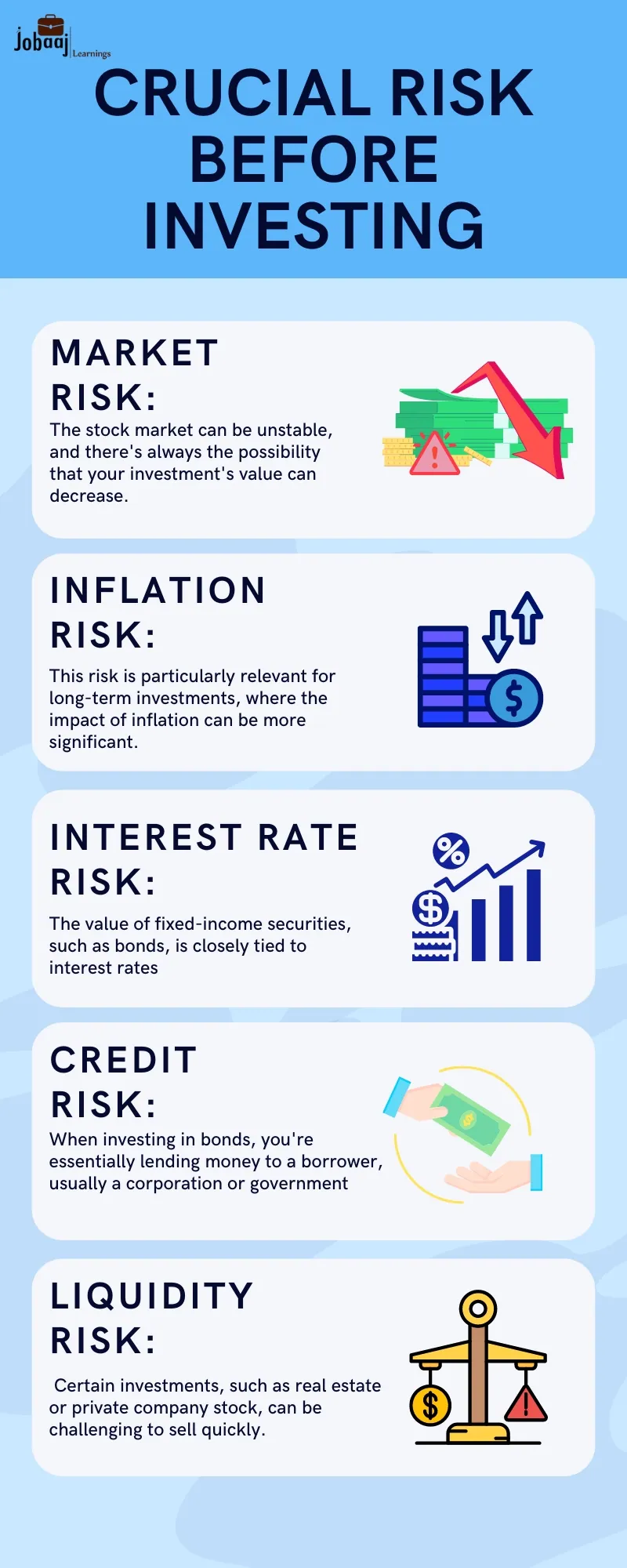In the world of investing, the stock market can offer great potential for growth and financial returns. However, knowing when to take risks and when to play it safe is crucial to maximizing your success in the stock market.
First and foremost, consider the overall state of the economy. A robust and growing economy often provides a positive outlook for the stock market, while a struggling economy can be a red flag for potential investments. During times of economic uncertainty, it may be wise to exercise caution and hold onto more conservative investments, rather than take big risks in the stock market.
Another factor to consider is your personal financial situation. If you have significant savings and can afford to take risks, betting big on carefully researched stocks can potentially lead to higher returns. On the other hand, if you have limited resources and cannot afford to lose much, a more conservative approach may be a better fit for you.
Investing in any form of asset, including stocks, bonds, real estate, etc., can be a great way to expand your wealth with the passage of time. However, it's crucial to understand the associated risks to make knowledgeable choices and handle your investments sensibly.
Top 5 Do's of Trading:
1. Be careful about guaranteed returns:
Don't fall for promises of easy money. Wealth takes time to build, so avoid schemes offering quick profits that sound too good to be true. Instead, focus on long-term investments that offer realistic returns and growth opportunities.
2. Check your account regularly:
Keep a close eye on your trading account to ensure the safety of your funds and investments. Make it a habit! Regular monitoring helps you spot any unauthorized transactions, reconcile balances, and rectify any errors promptly. This proactive approach safeguards your financial assets and prevents potential losses.
3. Update your contact information:
Ensure your broker has accurate contact details, including your phone number and email address. This facilitates effective communication and timely receipt of important updates, alerts, and notifications regarding your investments and trading activities.
4. Get your accounts settled often:
Choose regular settlements for your trading accounts to stay informed about your financial situation and guarantee that all regulations are met. Efficient settlements reduce the possibility of inconsistencies, unapproved operations, and non-adherence, encouraging openness and responsibility in your trading endeavors.
5. Know how to complain:
Know how to handle complaints, and report any inconsistencies or problems to your broker and the appropriate authorities as soon as possible. Grievances should be handled appropriately to protect your investment interests and guarantee a prompt settlement. Maintaining confidence in the trading ecosystem requires taking proactive measures to address issues.
Top 5 Don'ts of Trading:
1. Don't deal with unapproved brokers:
To safeguard yourself against possible fraud and scams, the most important don't is to refrain from trading with unregistered or unapproved brokers. To protect your money and guarantee compliance with regulatory requirements, you should always confirm the qualifications and registration status of your broker before making any financial transactions.
2. Don't ignore messages about your trades:
To ensure accuracy and identify any irregularities, closely monitor emails and notifications related to your trades. Failing to respond to these messages could cost you money in the form of fraudulent or illegal transactions or cause you to miss out on possibilities. It prevents possible losses and preserves the integrity of your trading account when any discrepancies are promptly reported to your broker.
3. Keep your banking information safe:
Safeguard your banking information, including passwords, OTPs, and account details, to prevent unauthorized access and financial fraud. Avoid sharing sensitive information with anyone and refrain from disclosing personal or financial details through unsecured channels. Protecting your banking information is crucial for maintaining the security and confidentiality of your financial assets.
4. Only transfer money to trusted sources:
When transferring money for trading or investing, proceed with caution and make sure that only legitimate and approved brokers are used for transactions. To reduce your risk of falling victim to identity theft, financial scams, and fraudulent activity, avoid sending money to unidentified or unconfirmed businesses. Checking the recipient's identity reduces the possibility of financial losses and helps protect your money.
5. Don't follow advice blindly:
Be cautious and use good judgment when evaluating investment advice from different sources. Refrain from adopting advice at face value without doing adequate investigation and analysis. Consider the advice's credibility, dependability, and relevance before making any investing decisions. Your capacity to make wise investment decisions in line with your financial objectives and risk tolerance is improved when you rely on well-informed decisions and unbiased evaluations.
Investors should be aware of these crucial risks before investing:

- Market Risk: The stock market can be unstable, and there's always the possibility that your investment's value can decrease. This type of risk is part of all investments and occurs when the value of your investments goes down due to market changes.
- Inflation Risk: Over time, inflation decreases the value of money. This risk is particularly relevant for long-term investments, where the impact of inflation can be more significant.
- Interest Rate Risk: The value of fixed-income securities, such as bonds, is closely tied to interest rates. An increase in interest rates can reduce the value of your bond investments, so it's vital to keep this risk in mind when investing in bonds.
- Credit Risk: When investing in bonds, you're essentially lending money to a borrower, usually a corporation or government. There's a possibility that the borrower might default on the loan, which could result in a loss of your investment.
- Liquidity Risk: Certain investments, such as real estate or private company stock, can be challenging to sell quickly. In the event that you need to sell your investment rapidly and there are limited buyers, you may have to sell it at a lower price, leading to a loss.
The amount of your stock market wagers should also be influenced by your investing objectives. It can be wiser to place more value on stability than prospective growth if you are saving for a short-term objective like a down payment on a home.
However, taking on greater risk in exchange for a potentially larger return may be a choice if you are saving for a long-term objective, such as retirement.
Conducting thorough research is also critical when considering large investments in the stock market. This includes analysing the financial performance of potential companies, keeping an eye on stock valuations, and considering expert opinions and analysis.
It's also a wise idea to diversify your investments by spreading your money across various companies and industries.
Lastly, it's important to remember that the stock market can be unpredictable. While taking big risks can potentially lead to big returns, there is always the chance of losing money.
A well-rounded investment strategy, including a mix of conservative and growth-oriented investments, can help mitigate risks and increase the chances of success in the stock market.
Conclusion
The decision to bet big in the stock market should be based on a number of factors, including the current state of the economy, your personal financial situation, your investment goals, and thorough research.
By carefully considering these factors, you can minimize your risk of losing money in the stock market, and potentially make a big return on your investment.
Want to Upskill yourself? If yes, then join our free workshops

















